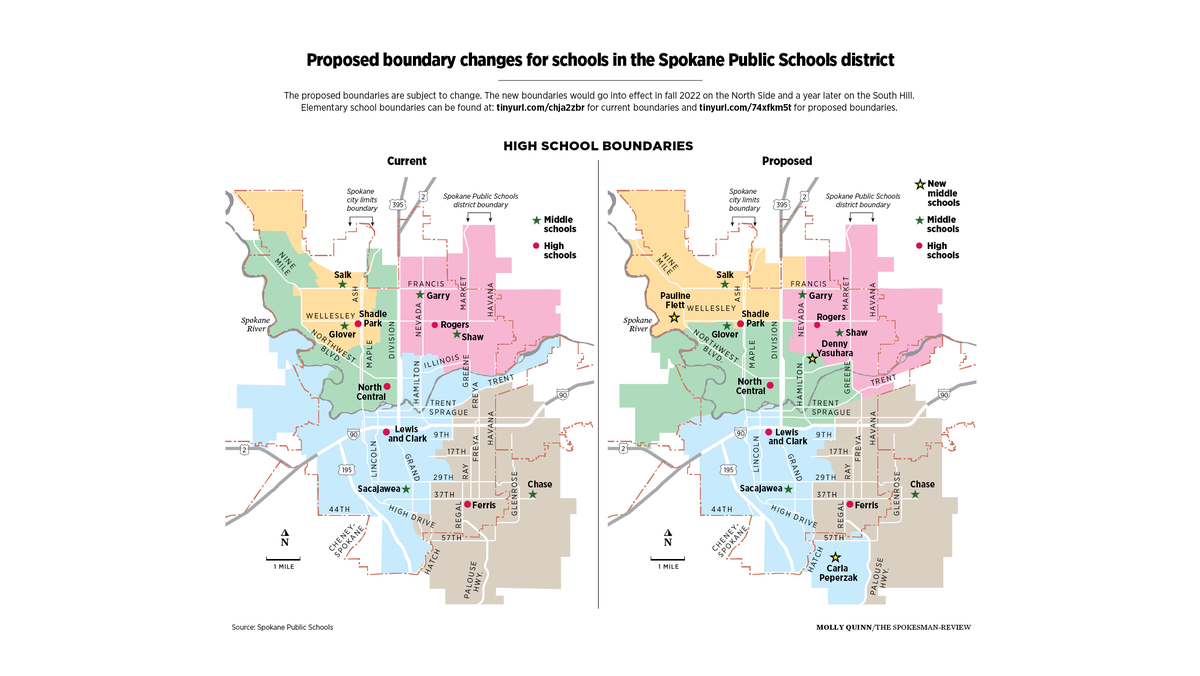Spokane Public Schools’ long-awaited boundary vote delayed again

Families and students will wait at least another week – and perhaps another month or two – to learn where Spokane Public Schools will draw its new boundary lines.
During a meeting Wednesday night, board members heard more public testimony, most of it critical, on changes that will affect thousands of students in the next few years.
And for the second straight week, four of the members expressed a willingness to move forward with the plan before yielding to Jenny Slagle’s proposal to delay a vote for the sake of further discussion with the community.
The issue will be on the agenda next week for a possible vote.
Board President Jerrall Haynes sat on the district’s Boundary Review Committee and largely agrees with its proposal.
“However, It’s important to our community for us to get it right,” Haynes said.
“Historically, boundaries changing and the decisions made around them were made for the wrong reasons, and we just want to make sure as we consistently pursue building a more equitable system, that we’re making the right decisions for the right reasons,” Haynes said.
If it doesn’t get voted on Wednesday, a final decision would be postponed until at least August because of staff summer vacations.
The product of 16 months of committee meetings, the current proposal emphasizes walkability and cohorting – that is, keeping students together as they progress through the system.
According to the district, the emphasis on cohorting and neighborhood schools will “bolster students’ sense of belonging, build students’ relational networks with teachers and other students and allow for meaningful parent-school collaborations, especially at the secondary levels.”
Critics, however, point out that the gap between high- and low-achieving secondary schools will widen in many cases. For example, new Denny Yasuhara Middle School in northeast Spokane will have a free-and-reduced-lunch percentage approaching 90% when it opens in the fall of 2022.
The new Carla Peperzak Middle School, on the other hand, will draw on an upper South Hill demographic that will be the most favorable in the city.
Stefan Lallinger, a former teacher and principal, urged the board to pursue additional research on the current proposal.
Lallinger contended that the current proposal is tantamount to socioeconomic “segregation,” based on the changes to free and reduced-price lunches under the proposal.
Lallinger also contended that the district is overstating the importance of cohorting in improving student outcomes.
Devony Audet, a mother of three in northeast Spokane, also supported hitting the pause button.
“There’ve been some things (the school district) missed,” Audet said. “One of them being making sure that all areas of Spokane are being heard equally so we are not overlooking any of our populations.”